Beyond the "Search" Box
Anecdotally, we have all been hearing some version of this in the last few months, at least on twitter: “After I started using ChatGPT, my Google search usage went down a LOT!”
While Google bears increasingly depict a visceral visualization of Google increasingly being replaced by ChatGPT, Google search bull thesis remains reliant on the arguments related to default distribution, consumer habits, and AI being potentially query expansionary in nature. The crux of the debate basically comes down to whether AI is going to expand query market or ChatGPT is mostly going to replace traditional search over time.
So, I was particularly intrigued by this study conducted by Semrush which tried to answer this question. They started with two hypotheses:
Substitution Hypothesis: ChatGPT adoption pulls users away from Google Search. People “substitute” ChatGPT for how they previously used Google.
Expansion Hypothesis: ChatGPT adoption does not reduce Google usage. In other words, it simply expands overall information-seeking behavior.
Semrush tracked 260 billion rows of clickstream data on U.S. desktop users who began using ChatGPT in Q1 2025, comparing their Google Search sessions in the 90 days before and after adoption to a control group that never used ChatGPT. This setup allowed them to isolate whether ChatGPT adoption caused changes in traditional search behavior compared to natural trends over time.
The overall result of the study shows after adopting ChatGPT, users increased their Google Search sessions from 10.5 to 12.6 per week while also adding about 5 ChatGPT sessions weekly, suggesting ChatGPT use complemented rather than replaced Google searches.
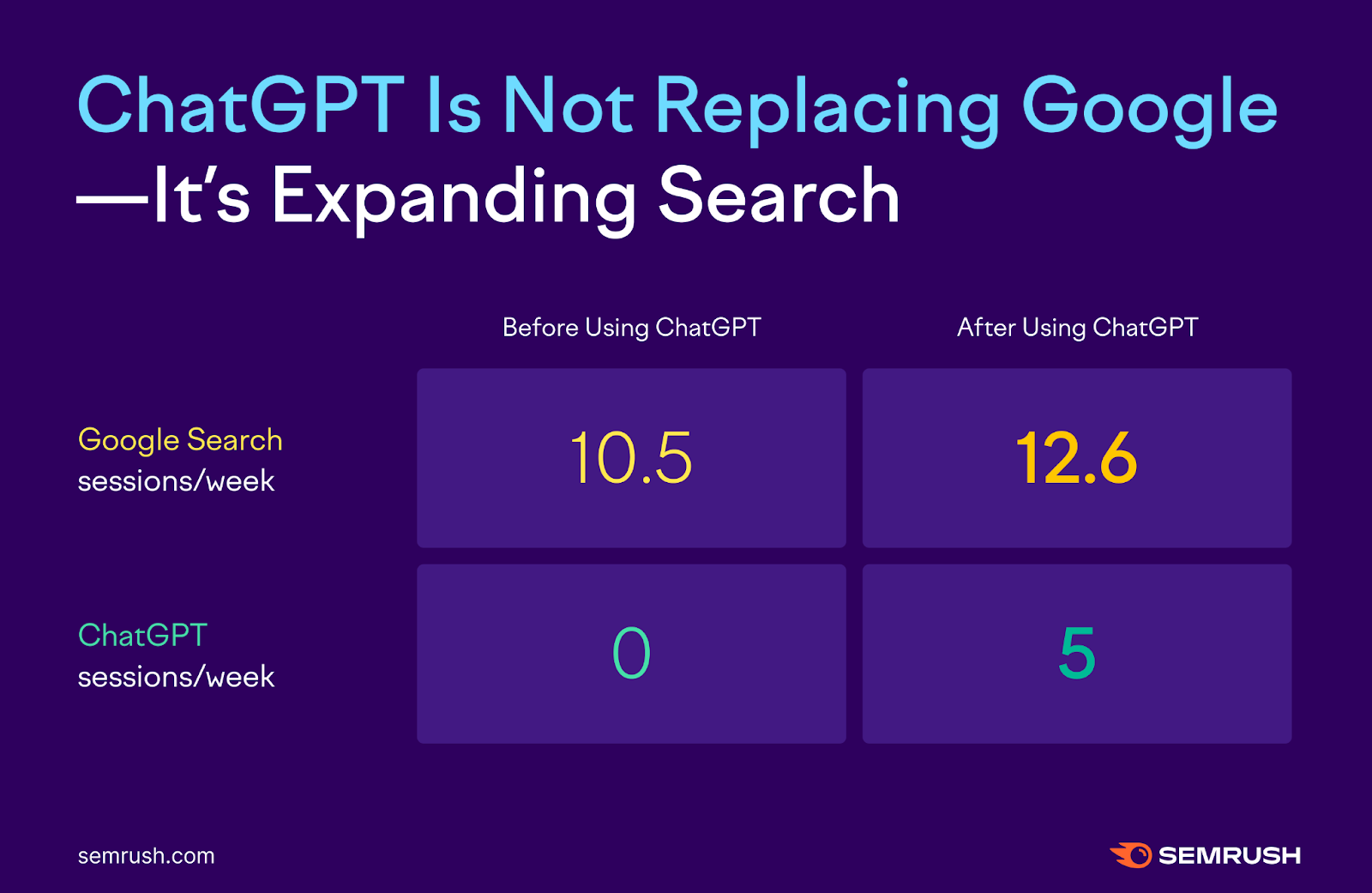
Semrush shared some cohort level data by month which all show that despite sustained ChatGPT usage after adoption, Google Search usage remained resilient.
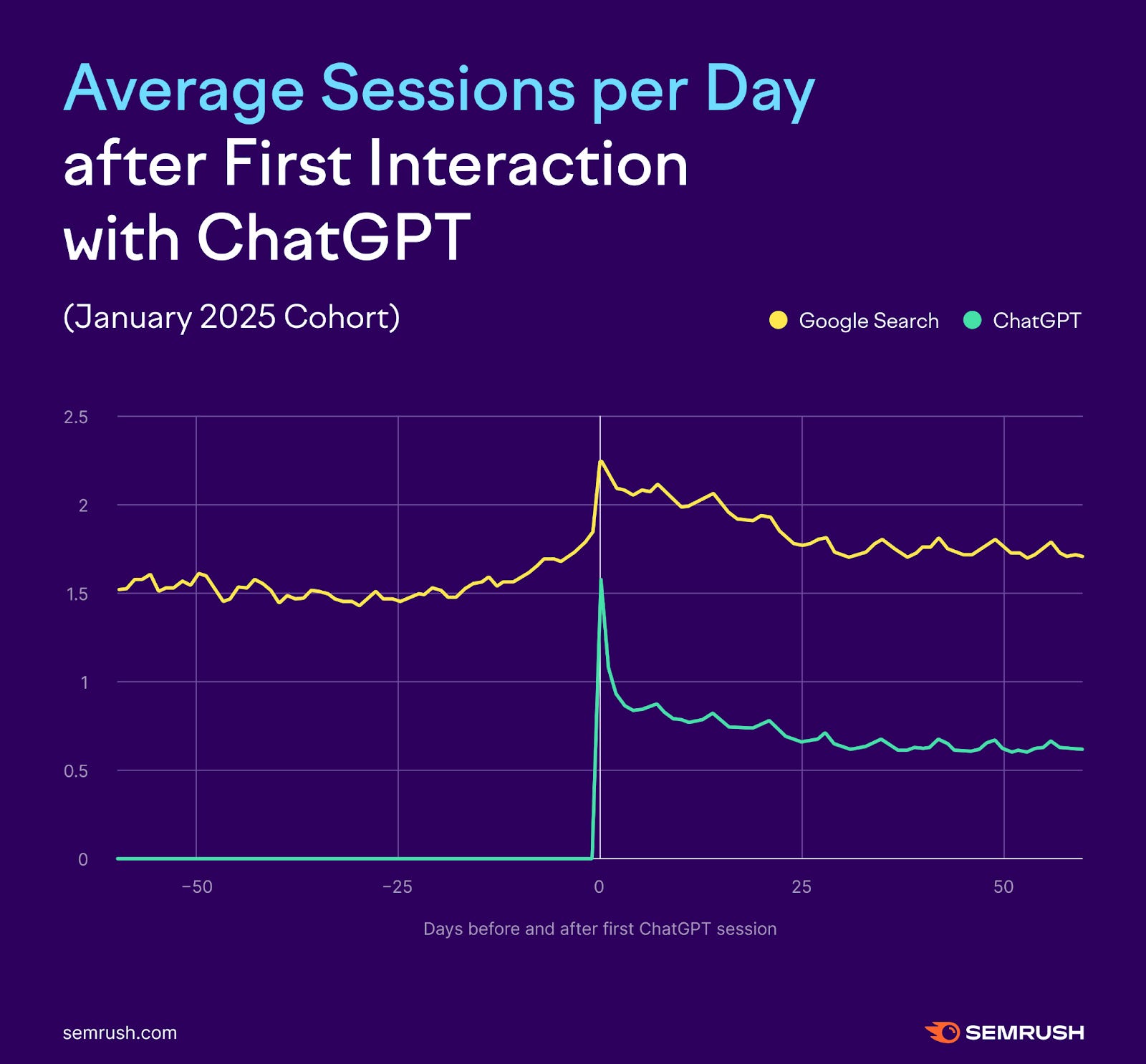
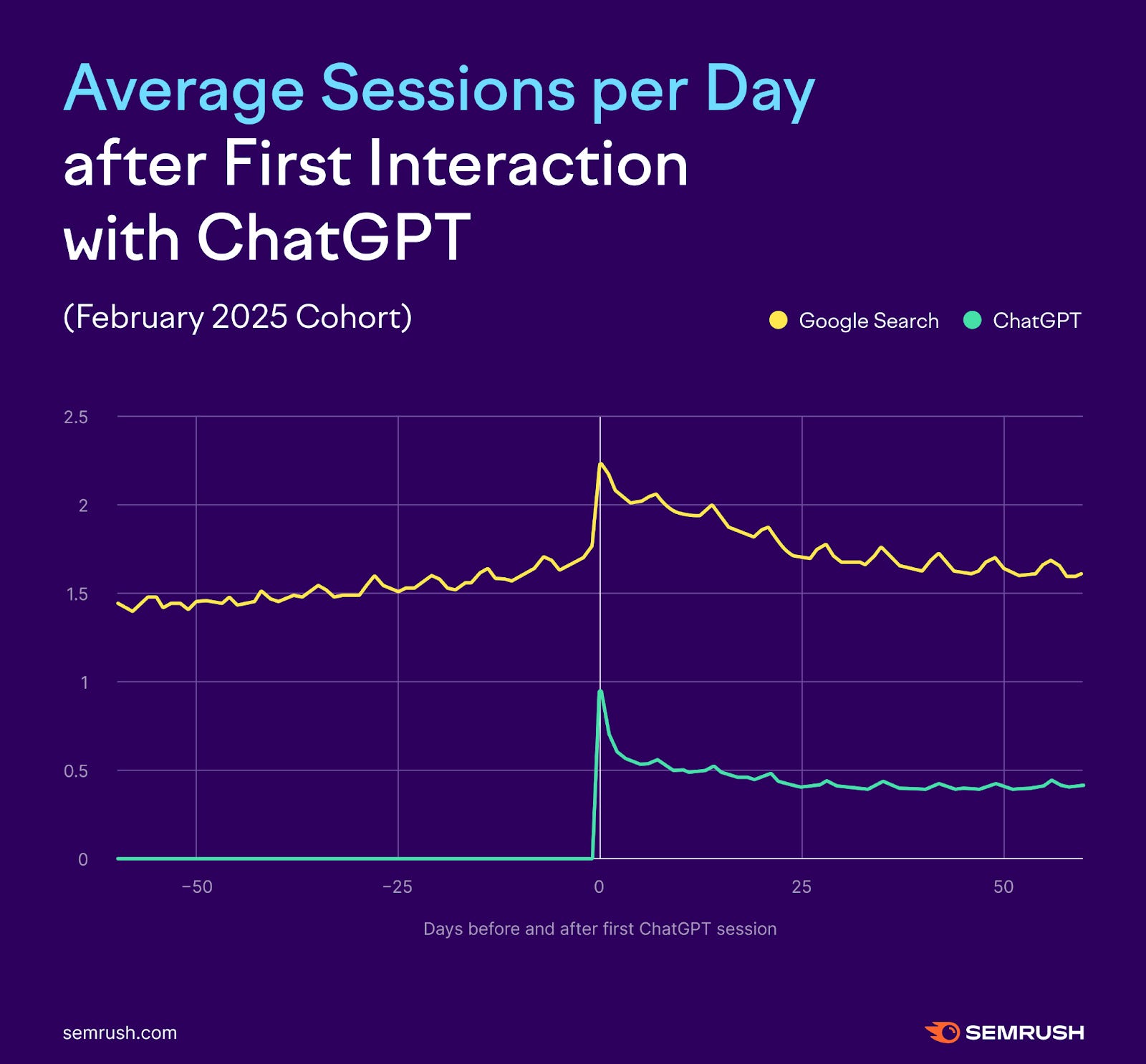
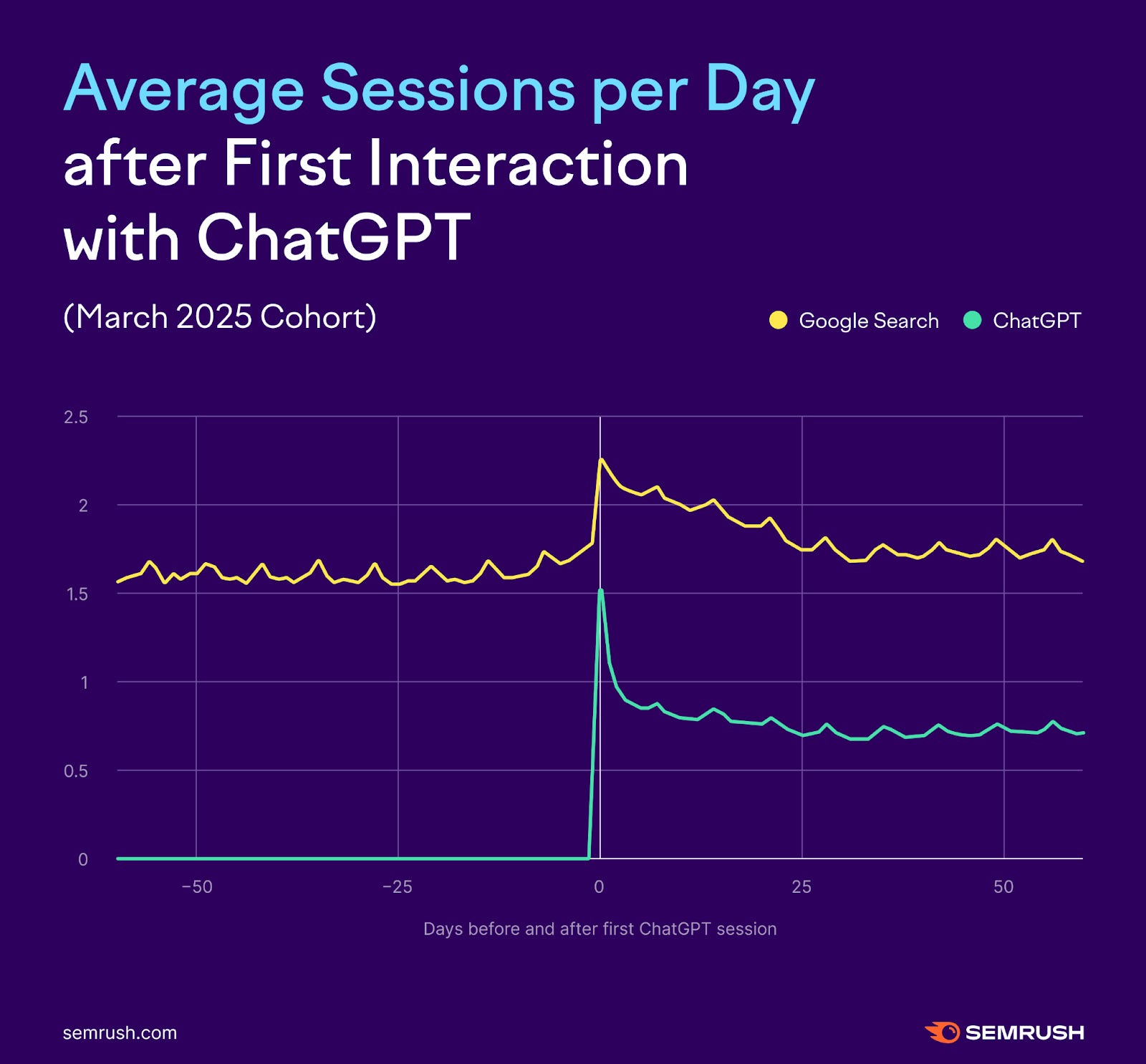
One may wonder if you keep using ChatGPT for longer than a year, perhaps it eventually changes your Google usage. That also doesn’t quite seem to be the case yet since a 500-day study by Semrush of users who began using ChatGPT in January 2024 found that Google search activity remained steady while ChatGPT usage stayed consistent after adoption.
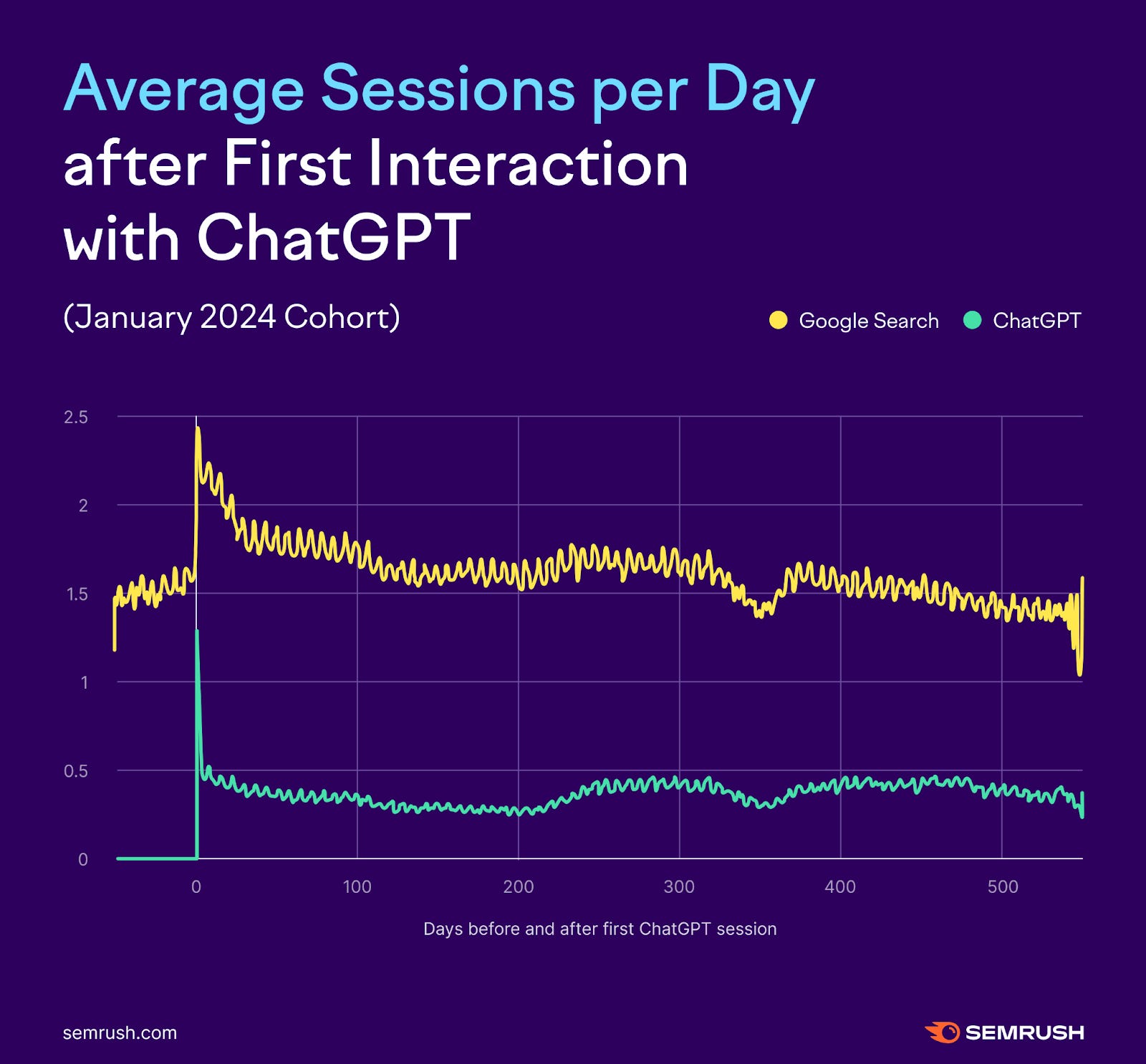
Of course, it’s not just ChatGPT. Google Search potentially faces another vector of competition as Gen Z increasingly search on TikTok and Instagram. A recent AlphaSense expert interview of a former Product Lead at Meta (free trial link for AlphaSense here) I came across discussed this topic at length. The expert highlighted how the search activity on IG vs Google are fundamentally different:
Instagram was never built to serve utility. Now, with Meta AI layered into this, it is starting to serve some of it. Now, the point is that people do search on Instagram but not the way that they search on Google. It's not a hardcore utility. Instagram has always been a discovery mechanism.
Here, the searches, if you look at the kind of searches people do, as I said, it's not "I want to buy a Nike shoe," and "Give me Nike shoes." It is like, "Give me inspiration for summer outfits," or "Give me healthy meal preparation plans," or "What are the best venues for hiking in summer in London in U.K.?" for instance. These are not in traditional ways, not that utility of search, but it is utility adjacent. The goal is real, but the form of answer is not very specific.
Meta knows that users won't replace Google for let's say, "What is the capital of United Kingdom," or things like that. People never search for that on Instagram, and Meta knows that. That is why that's not the goal. The goal is for every interest-led, creator-first or visual topics there is where the objective is to make results more relevant and give fast summaries and reduce friction. You can think of it as not replacing Google but actually consuming the unsolved cases, like beauty, fashion, lifestyle.
When asked to stack-rank the verticals that matter most for Instagram search volume, the expert mentioned five categories (in that order): a) beauty and skincare, b) fashion and apparel, c) Pop culture, entertainment, d) Local discovery, e) Creator-led commerce.
So, while Instagram and TikTok do seem to be helping users discover new products/services not just through their ads but also through search queries (and perhaps through AI chats in the future), Google does seem to have a steady position of answering high intent and more utility type queries.
Speaking of utilities, one thing that I’m increasingly confident about is that the AI chat bots are gradually creating deep consumer surplus as they keep launching new features and consumers get acquainted with more and more use cases over time. These really aren’t mere amorphous query box; these feel much, much deeper than that. I’ll share a particular feature in Gemini that recently blew me away behind the paywall.
In addition to "Daily Dose" (yes, DAILY) like this, MBI Deep Dives publishes one Deep Dive on a publicly listed company every month. You can find all the 61 Deep Dives here.